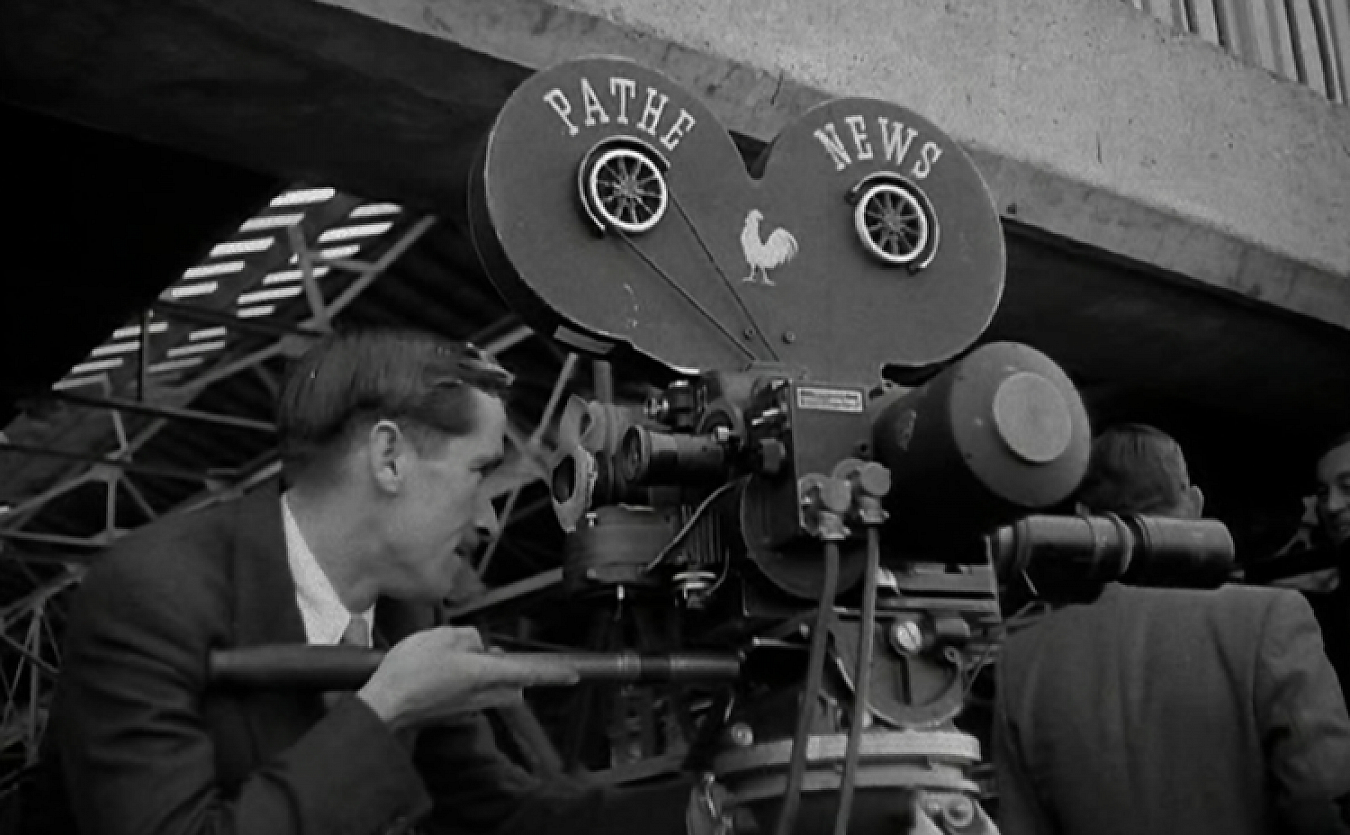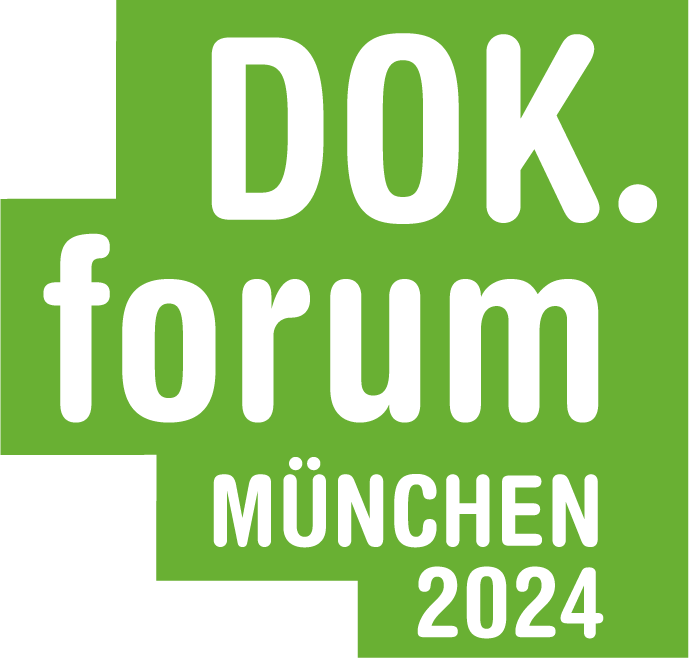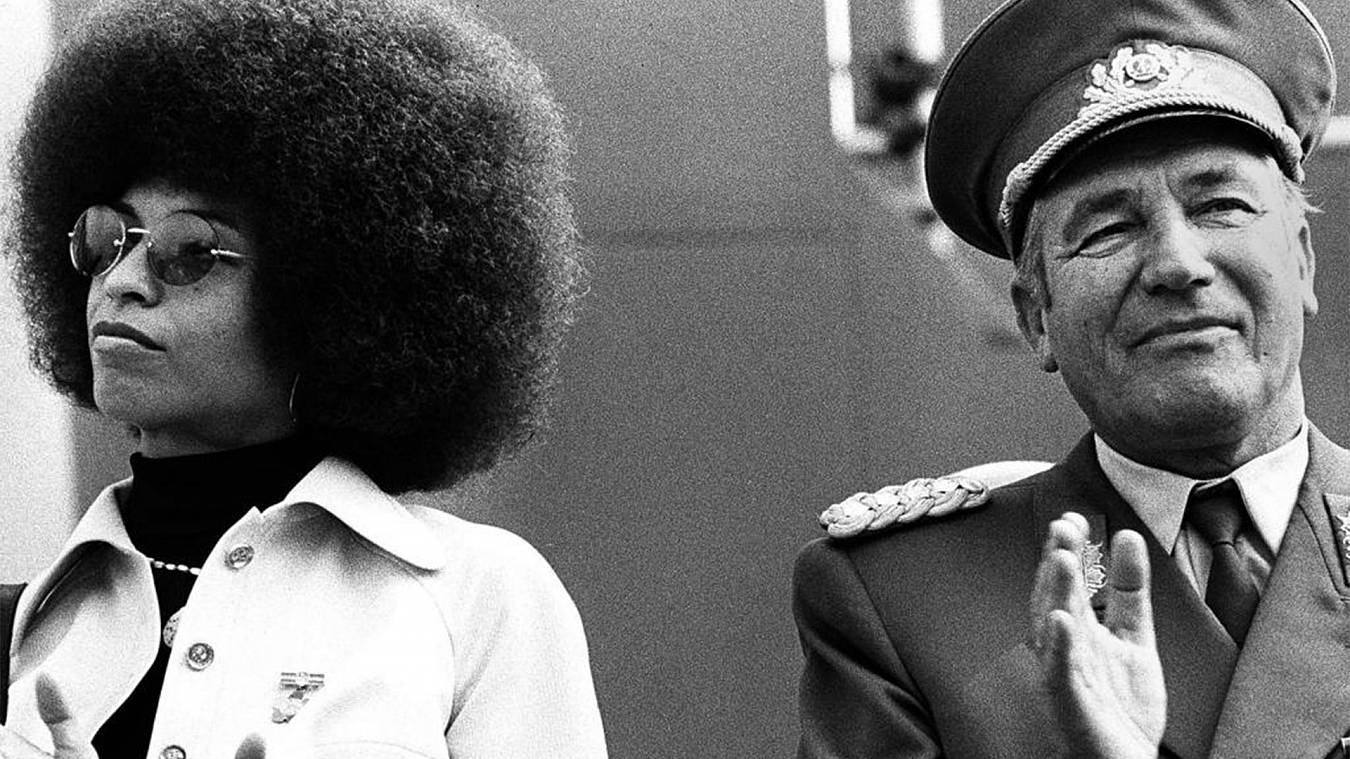DOK.archive Award
Donated by British Pathé, endowed with material supply worth 22,500 euros or 2,500 euros in cash

The DOK.archive Award honours outstanding archive and compilation film projects in development or early production. High-quality archive footage is often invaluable for documentaries. The use of historical or commercial film excerpts on a larger scale, however, increases the required production budget substantially. With the DOK.archive Award, British Pathé and DOK.forum aim at promoting projects utilising licensed material and thus strengthening this traditional documentary genre.
Among all submissions for the DOK.archive Award, 5 projects will be presented to a jury of five during a live pitch at the DOK.forum Marketplace. The winning project will receive British Pathé archive material worth 22,500 euros, alternatively 2,500 euros can be paid out in cash.
Award Donor: British Pathé
British Pathé is considered to be the finest newsreel archive in the world. Now also representing the Reuters Historical Collection, it has become a one-stop archive for the story of the 20th century. This treasure trove of 220,000 films, unrivalled in their historical and cultural significance, is used extensively by broadcasters, production companies, corporations and museums, among many others.
Review
Award winning project 2024: OUR SISTER ANGELA – BLACK POWER IN THE GDR
Award winners:
Katharina Warda and Jascha Hannover
Angela Davis was perhaps the biggest superstar in the short history of GDR. Picture the scene: In 1970, the Black civil rights activist is arrested in the US and faces the death penalty. People all over the world show solidarity with her, but the greatest support comes from East Germany. Under the slogan "1 million roses for Angela", GDR citizens write tens of thousands of postcards demanding her release. Sculptors immortalise her likeness as a statue, GDR radio songs tell of her fight for freedom. After her acquittal, Angela Davis visits the GDR twice and is met by hundreds of thousands cheering citizens. In the film, we dive right into that historical era: the Cold War was still hot, Black and socialist movements around the world were on a winning streak, and it was a time full of hope. That all culminated in Angela’s second visit to the GDR to attend the World Youth Games in East Berlin, an event which historians have referred to as the Woodstock of the East. But this solidarity had a false pretence. The enthusiasm that Angela Davis was met with by the GDR regime did not correspond to the actual reality of life for Black people in the country. Instead life for Black people was characterised by everyday racism and invisibility, which also applied to the co-directors childhood. Was Angela used fro propaganda? According to the SED regime, the existence of such racism in the socialist GDR was impossible – a denial that resulted in a collective silence, the effects of which can still be felt in East Germany today.
From the jury statement
"The use of archive material is of crucial importance for this project. (...) The filmmakers provide intelligent analysis of a historical event. One could dismiss Angela Davis' visit to the GDR as pure propaganda, but from today's perspective it is clearly more than that. (...) The filmmakers reclaim the narrative of the material and reinterprete and use it from the perspective of coming to terms with the history of of black Germans and people of colour in the former GD. (...)"
Jury 2024
Thomas Beyer, Commissioning Editor, MDR, Department History and Documentaries
Karin Jurschick, Dept. IV, Documentary Film, HFF München
Emanuel Rotstein, Head of Documentaries/Producer, Bavaria Fiction Documentaries
Simon Witter, Footage Archive/Licensing, British Pathé Ltd.
Award winning project 2023: BERLIN CHIC
Award winner:
Sigal Rosh
Rarely are the words “Holocaust” and “fashion” spoken in the same breath. While German designers were once held in the same regard as their counterparts in London and Paris, its fashion industry was decimated along with the Jewish artisans who were at its forefront prior to the Holocaust. BERLIN CHIC will expose their stories for the first time. Fashion represents far more than just clothing – it’s a reflection of culture at a particular time. Rare archival materials (documents, sketches, drawings, posters, 1920s magazine covers, photographs, models, audio materials, and firsthand testimonies) and interviews offer a behind-the-scenes look into the glory days of German fashion. The question of why German fashion never bounced back after the war will be exposed. BERLIN CHIC will give voice to the German-Jewish artisans who built it and, in turn, shaped art, culture, and society until today.
From the jury statement
"With a wealth of new information and archival imagery – footage, photographs, sketches, drawings and fashion magazines – the team brought to life the colourful fashion industry of Berlin in the 1920s and 30s and revealed exactly how and why the Babylon Berlin glamour of that era was replaced by the city’s post-war status as a fashion backwater. The film convinced the jury with its urgent political approach, the innovative use of archive material and how clothes turn into collective witnesses of the voices of injustice and violence, but also about an imagination of a past, present and future of resistance, empowerment and desires."
Jury 2023
Cana Bilir-Meier
Stephen Maier, Archive Producer
Jan Rofekamp, Consultant
Emanuel Rotstein, Head of Documentaries/Producer, Bavaria Fiction Documentaries
Simon Witter, Footage Archive/Licensing, British Pathé Ltd.
Award winning project 2022: I USED TO BE THE MAYOR
Award winners:
Alexander Sussmann (director), Karoline Henkel and Laszlo Josza (producers)
Gabor Demszky was a taxi driver turned writer, who in the 80’s became a leading voice in the underground opposition to Hungary’s totalitarian regime. After the collapse of the Soviet Union, he became the first elected Mayor of Budapest – and over the course of 20 years, he helped transform his country into a vibrant liberal democracy. Today power is in the hands of Victor Orban. No opposition voices are tolerated. Gabor’s triumphs are long forgotten. At the age of 68, he struggles with the anonymity outside the political spotlight and is taking stock of the price he’s paid – personally and reputationally – for his place in Hungary’s history. The transition time of the regime change and Gabor’s time in power is well documented. Playfully designed animations are presented in a patchwork style with archive material (various elements from photos and newspapers to moving archive images).
Jury statement
"Five election victories and five divorces – the project I USED TO BE THE MAYOR portrays a multi-layered personality whose political life and personal trials and tribulations shed light on one of the greatest challenges and issues of our time: the disappearance of democratic values in the face of new populist autocracies (...) The jury was impressed by this story and the way the team aims to bring history to life for a younger audience by combining archive material and animation."
Jury 2022
Thomas Beyer, MDR, History and Documentary Editorial Department
Simon Witter, Footage Archive / Licensing, British Pathé Ltd.
Petra Gruber, Head of Channel Cooperation 3sat and ARTE, ORF / 3sat / ARTE
Dr. Nikolaus Wostry, Film Archive Austria
Käte Schaeffer, Acquisitions, ARSENAL Filmverleih GmbH
Award winning project 2021: LIFE IS NOT A COMPETITION BUT I’M WINNING
Award winner:
Julia Fuhr Mann
This film wants to explore the utopian potential in competitive sports, especially in running sports. It aims to create a world far away from strict sex and gender perceptions – because sex segregation is still socially accepted in sports, but it is unimaginable to be that rigid anywhere else in today‘s society.
In a mixture of fictional and documentary scenes, the film will create an utopian world where athletes are not classified according to their sex or gender, but are given space to show their uniqueness.
Jury statement
"Our audiovisual heritage is our preserved memory. We can find in this collective memory many beautiful as well as unpleasant perspectives on ourselves that were never in the conscious intention of the recorders. It is this new look at our past that the director and producers use to bring their project LIFE IS NOT A COMPETITION BUT I'M WINNING into the present. By reflecting to us the power of our communal adherence to norms and narratives, they ask us about our willingness to change. The project by Julia Fuhr Mann, Sophie Ahrens and Melissa Byrne addresses the utopian potential of competitive sport beyond rigid gender boundaries and images. [...]"
Jury 2021
Gunnar Dedio (LOOKSfilm)
Nina Goslar (ZDF/ARTE)
Karin Jurschik (HFF München)
Euridice Zaituna Kala (Euridice Kala)
Julia Teichmann (German Films)
Simon Witter (British Pathé Ltd.)
Award winning project 2020: QUEEN OF CHESS
Award winners:
Bernadett Tuza-Ritter, Gabor Harmi and Zsofi Lili Kovacs
It tells the largely forgotten story of the Hungarian Judith Polgar, who became famous as a young girl in the male domain of chess competitions. Historical footage leading into late communist Hungary is linked with home movies from the private archives of the Polgar family as well as television reports on the competitions with the world chess champions of her time, especially Garri Kasparov. The result is an intimate portrait of an unusual young woman and at the same time a journey through time into a period of historical upheaval.
Jury statement
"The jury was particularly impressed by the clever and virtuoso handling of the versatile archive material. The historical and largely unknown film footage represents a fundamental narrative level here. The jury also finds it promising how the different facets of this child prodigy story are fanned out: the father's educational experiment, the gender relationship, the idiosyncratic world of chess, the tension of competitions, the social and political conditions – all this is reflected in this exciting biography of women."
Jury 2020
Anke Hahn (Head of film distribution, Deutsche Kinemathek – Museum für Film und Fernsehen)
Patrick Hörl (Managing Director, Autentic GmbH)
Monika Preischl (Archive Researcher and Archive Producer)
Simon Witter (Footage Archive / Licensing, British Pathé Ltd.)












